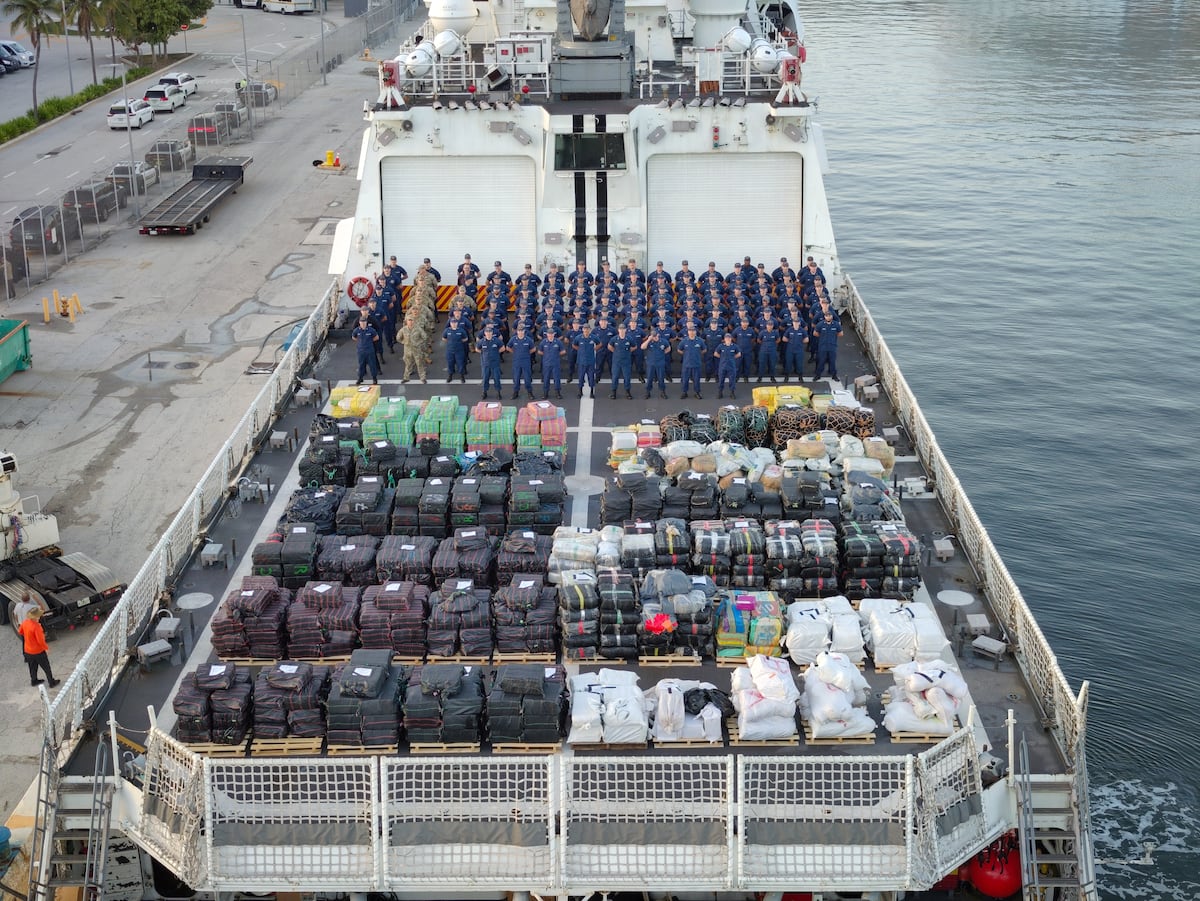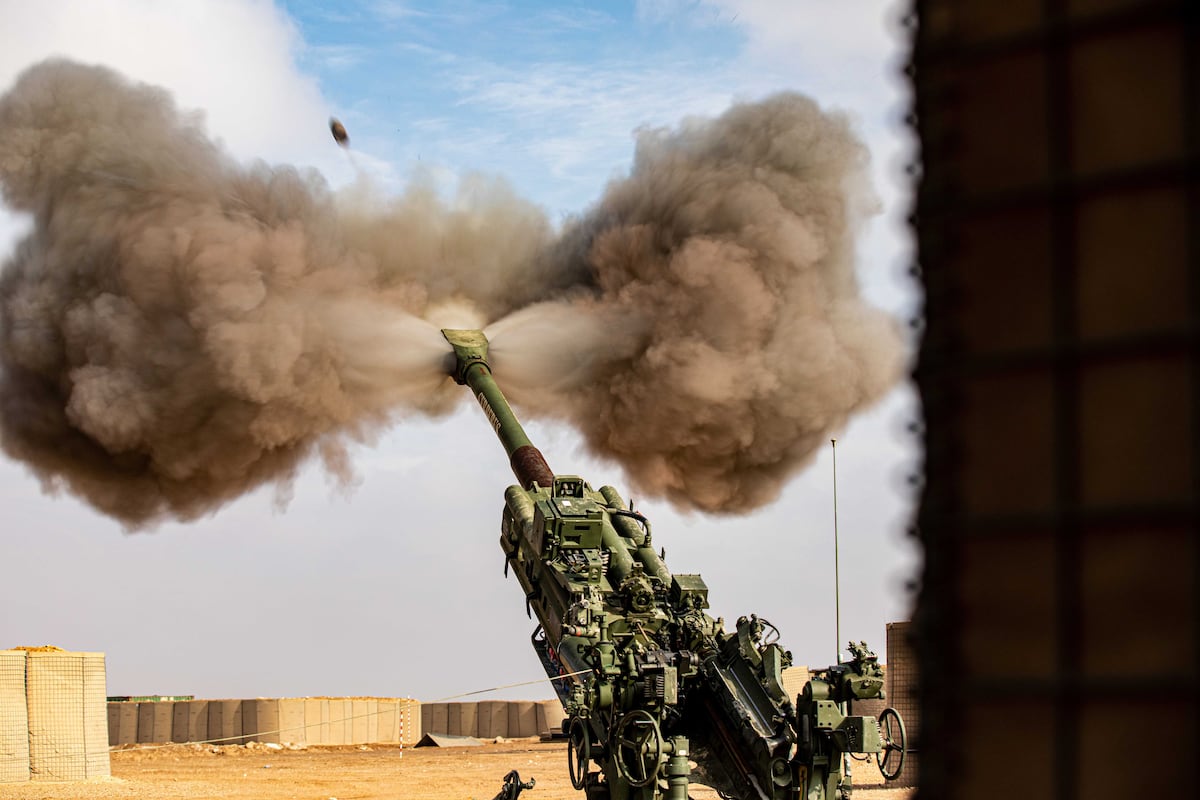US Coast Guard offloads record amount of narcotics

The U.S. Coast Guard offloaded 76,140 pounds of illicit narcotics on Monday, the largest single illegal drug dump in Coast Guard history.
The illegal narcotics surrendered by the Coast Guard cutter Hamilton in Port Everglades are valued at $473 million, according to a statement from the Coast Guard.
“This combined illegal narcotics offload prevented the maritime flow of approximately 23 million potential lethal doses from reaching the United States,” it added.
The largest Coast Guard offload prior to Monday was in 2021 when the Coast Guard Cutter James crew offloaded 61,130 pounds of illicit drugs.
The latest seized contraband was the result of 19 interdictions in international waters of the Caribbean Sea and the eastern Pacific.
Cocaine accounted for the vast majority of the illicit narcotics, which also included marijuana.
Multiple Coast Guard cutter interdictions contributed to the catch, along with Coast Guard Law Enforcement Detachment crews deployed aboard the Royal Netherlands Navy ship HNLMS Friesland, the American Navy destroyer USS Cole and the Navy littoral combat ship USS Minneapolis Saint-Paul.
If a Coast Guard law enforcement team is aboard a Navy ship when potential drug smugglers or migrant traffickers are identified at sea, the Coast Guard team can raise its ensign to create what’s commonly referred to as a “title shift,” granting the ship authorities under Title 14 to carry out law enforcement activities ranging from inquiries, examinations, searches, seizures and arrests.
The Coast Guard regularly deploys LEDETs aboard both U.S. and allied vessels, and is responsible for interdicting drug trafficking vessels – including fast boats, fishing and semisubmersible vessels – transporting illegal narcotics at sea. The Coast Guard typically focuses on interdicting cocaine shipments, which drug trafficking organizations commonly transport using maritime routes.
Operation Pacific Viper
Since Jan. 20, the Coast Guard says it has tripled its operational presence to better “secure America’s maritime borders, territorial integrity and sovereignty.”
Last week the Department of Homeland Security announced the Coast Guard’s launch of Operation Pacific Viper to further surge forces to the eastern Pacific. Many of the recent drug seizures made during Pacific Viper thus far have been large quantities of cocaine.
“The Coast Guard is deploying additional counter drug force packages which include major cutters, specialized sniper equipped helicopters from the Coast Guard’s Helicopter Interdiction Squadron (HITRON), law enforcement boarding teams, and long-range patrol aircraft,” Coast Guard spokesman Lt. Cmdr. Steve Roth told Military Times.
The operation is the latest in a series of bids to use U.S. maritime power to counteract drug trafficking at sea. In March, U.S. Navy destroyers carrying Coast Guard LEDETs were deployed to the southern border as a deterrent to smugglers seeking alternative routes to moving illicit shipments over the border from Mexico, which is becoming more impassable due to increased U.S. military presence.
Zita Ballinger Fletcher previously served as editor of Military History Quarterly and Vietnam magazines and as the historian of the U.S. Drug Enforcement Administration. She holds an M.A. with distinction in military history.
Read the full article here









